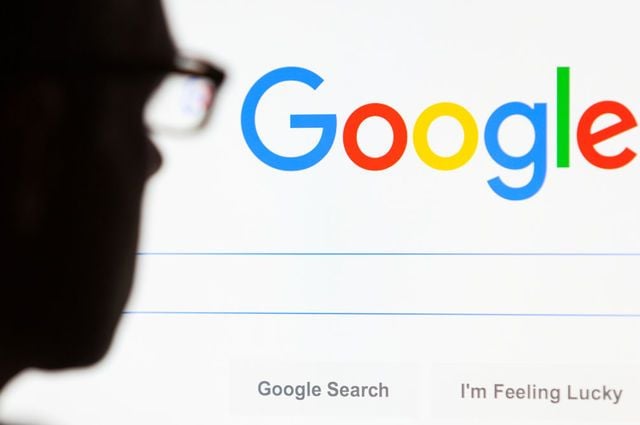Does Google’s “Zero Click Search” Mark the End of Hotel Paid Search Marketing?
9 experts shared their view
The Search Engine Journal just reported that 50.33% of searches on Google end up with no clickthroughs to websites because Google provides all the answers a user would need on the first results page itself. Google has become the "Librarian of the Universe" and has amassed more information than all libraries on planet Earth combined. Google has a singular objective: to provide answers - ultra-fast, relevant and straight to the point - to any question a human may have and, of course, make money in the process. With the advance of mobile and voice assistants, these answers happen more and more in the form of "Zero Click Searches" where the answer is provided right at the top of the SERP (Search Engine Results Page) and the user simply has no need to click and read further. With less than 5% of searches on Google resulting in clicks on paid search listings (Google Ads), does this mean the end of hotel paid search marketing?
Bracing for the future in a Google-first world
I would never have a black or white statement like this. Digital Marketing capabilities and Search in particular are very complex and cannot be isolated to all other digital marketing levers. Saying that Hotel Paid Search Marketing is changing, this is the right statement. It's adapting to how consumers are behaving online and how potentially they want to engage with a brand (or not). The 50,33% searches with no clickthroughs is certainly a major trend for informational marketing. When it comes to conversion or buying a product and/or a service, this share goes down quiet significantly.
What is true is the increasing grey zone between Paid Search and Organic Search (SEO). Mobile device consumer behaviors makes the search marketing different and gives a huge opportunity for consumer brands to gain again their fair share of the search marketing opportunities vs. third parties distributors. This gives also the brands great opportunities to optimize new or different online sources of business. 2020 will certainly be another year where the importance to have certified digital marketing teams to manage agility in marketing investments will be crucial.
Since mid-2017, I started experiencing a slight, but steady, decrease in Google Ads performances (both in terms of ROAS and CTR) for pretty much all of my clients. Back then, I had two rational explanations for the phenomenon: GHA cannibalizing GA results, or Google users favoring GMB listings (over paid ads) as their first entry touchpoint. After 12 months of careful monitoring, I found out the latter to be true. According to my analysis, in 2019, averagely 1/2 of the traffic and 1/2 of the revenue generated on my clients' official websites originated from their GMB listings.
Now, the behavior shift towards universal search is nothing new but -especially following the recent Google algorithm updates- this became way more evident in 2019. The bottom line is that, when I presented 2020 advertising budget proposals to my clients, I've cut around 20% of GA investments (and it's the first time, in my career, that I do that). With Google becoming the "Librarian of the Universe," moreover, not only GA performances, but the very notion of official website will be in danger of extinction. I've been stressing this for the last five years and, eventually, data seem to back me up: a future where GMB and a (decent) booking engine will be all your guests need to book, does not seem so far fetched. My suggestion? Reduce GA investments, do not overfocus on fancy, expensive websites, and make sure your GMB listings are up-to-date because, to paraphrase the mighty Buggles, "Universal Search Killed the Google Ads Stars."
That's an excellent question and indeed, I would tend to think hotel paid search marketing is poised for deep change, but that doesn't mean imminent death. Marketing dollars will shift towards more organic efforts or different paid initiatives. Geo-targeted ads for mobile search should continue to prevail, just like we can expect a shift of efforts towards voice search results, where position zero becomes the Holy Grail on Amazon Alexa or Google Home devices.
And for savvy marketers banking on visual search, there is still room for improvement with Google Shopping ads, Hotels ads and other similar initiatives seeking to get direct online bookings and getting properties and packages out in front of potential travelers.
Last but not least, Google "Zero Click Search" also means back to basics for many hotel marketers with regards to white-hat SEO practices: mobile optimization, site speed, image descriptions, titles, and meta-descriptions, etc. This is too often overlooked as some folks tend to simply spend on ad campaigns without a proper, functional site to begin with...
Although they are reluctant to admit it, search engine marketing in all its forms has already revolutionized most hotel's sales, marketing, and distribution. And now with increased prominence on its right-rail 'Knowledge Graph' listing, Google is doing a better job of providing customers with relevant information than most hotel websites.
Unfortunately, there is no such thing as a free lunch. Already Google is monetizing this service through its metasearch product, and associated costs will undoubtedly increase as the product gains further traction with consumers. With the exact business model of this new development still to be clarified, the only thing we can be sure of is that the cost of 'direct' distribution, which is in reality 100% facilitated by search, will inevitably further increase.
The growth in Zero Click Searches is the most recent byproduct of the ongoing collaboration between Google and its users to enhance how information is found, just like when improved search algorithms combined with evolved search habits to usher in long-tail keywords and render search results on pages two and beyond virtually useless.
It is important for marketers to understand how to respond to fewer and fewer people clicking on their listings. First and foremost, it is critical to take advantage of other Google offerings, like Google Local, that are grabbing some of the diverted traffic. Also, the most common search terms must be evaluated to see what is being returned on the search engine results page, since even though it is not driving as much inbound traffic, it is being read more than ever before.
The Zero Click phenomena is also having an impact directly on Google, in the form of a sharp decline in PPC advertising revenue due to the reduced click-through rates. There will always be reasons to pay a little extra for increased visibility, so paid search is going nowhere in the near future, but remember, at Google, when one door closes, another much larger one opens, so it is safe to say that there are more changes on the way.
Google has become the greediest toll taker in online travel and wants to make money - in the form of referral fees and advertising revenue - at every stage of the online travel consumer's Digital Journey and its Dreaming, Planning, Booking, Experiencing and Sharing Phases. So I do not believe Google will just let go of paid search revenue now when more than half of searches end up as “Zero Click Searches.”
I believe that Google Ads' cost-per-click (CPC) business model (which some old-fashioned hotel marketers still call PPC) has become hopelessly irrelevant in this new zero-click mobile and mobile assistant-dominated environment and will be replaced by CPM (Cost per Mille) - cost per thousand impressions, CVR- cost per voice referrals, etc. Hotel marketers need to follow this development very closely, make their websites AMP- and Schema.org-friendly, budget for Google Hotel Ads(GHA) and as a whole - take advantage of all advertising formats of the Google Ecosystem: from SEM, SEO, GHA, GDN, Gmail and YouTube.
Nothing will mark the end of paid search marketing on Google, quite the contrary, they are doing everything to increase the ad-spend. It will change the way websites are indexed and I think it will affect hotel branding. However, changes like this are more about indexing the content in ways that all replies can be given through simple requests to Google Assistant.
The question is do we need everyone to go through a website or is it enough that they see the hotel's information listed? It isn't going to help build the brand other than through the hotel's name (logos and artistic website layouts get punished). But someone who wants to know more about a particular brand and get a feel for the experience will most likely click.
So to answer on zero-click search - I think impressions still count.
I think the zero-click issue largely pertains to simple queries that can be quickly answered on the search results page. Travel-related queries are more complex. The bigger issue is Google's dominance as the chief gatekeeper to online travel planning and how it favors its own products. In hotel searches, organic results have been driven further down the page. Google monetizes the top results in the form of pay-per-click ads and the hotel search box. The current system favors big players with deep pockets, but even Expedia and TripAdvisor are feeling the pain.
Also concerning is last year's revamp of Google My Business listings. Since Google can't monetize hotel websites, it effectively recreated them in the form of GMB listings and now diverts traffic to these listings instead of hotel websites. The key difference is that GMB pages often list virtually every booking channel but the hotel's direct channel. To appear here, hotels have to pay.
If anything, paid search marketing is becoming harder to avoid for hotels—and more expensive. Maybe that's fair. Hotels have had a free ride on Google for a long time and still do in many ways.
I think zero-click search is having a more profound effect on natural search traffic than paid traffic but hoteliers should understand that an effective strategy in 2020 will need to include a different set of tactics for SEO and paid media from those that may have had good results in the past. Metasearch and Google Travel came of age in 2019 and Google would like you to research your destination, book a flight and hotel and even book a travel experience all within the Google landscape.
The good news is that a recent study found 87% of guests will visit a hotel's website before making a reservation. So although it may be becoming harder to get those visits via a direct click from an ad, they are still visiting hotel websites during the shopping journey. So I think it is crucial to focus on the website user experience and how you convert shoppers into bookers with great content, a mobile-friendly user interface and compelling merchandising that showcases the guest experience.
I'd also add that it is vital to use effective bid management and audience segmentation on paid media so that you are maximizing your media budget by targeting shoppers at the key stages of the funnel. Doing so can counteract any reduction in click-through rates you're likely to see this year.









